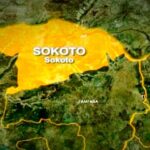By: Akinloye Emmanuel Ojewole
Across the world, and in Nigeria in particular, the rise in food prices has become a major issue threatening the food security of the country and negatively impacting the lives of many peopleand majority of the nation’s vulnerable communities. As experienced recently, prices of some major Nigeria staple food items such as rice, beans, gaari, yam, bread, cooking oils, and spaghetti among many others have all skyrocketed with percentages varying from 40-150% when compared to food prices of the same commodities about a year ago.
Rising inflation and growing food costs have worsened food insecurity, thereby making it harder for individuals to get nutritious food resulting in malnutrition. Similarly, economic instability has increased poverty by placing a greater burden on household needs and expenses. Because Nigeria depends so heavily on imported food, price volatility is exacerbated by the economy’s vulnerability to changes in the external market and supply chain disruptions. Hence, as the cost of food items continues to rise, prioritizing investment in local agricultural production is essential in ensuring food security and mitigating the adverse effects of food price inflation on the people.
Over the years, different administrations in Nigeria have put in place several measures to unleash the potential of agriculture and guarantee a steady supply of food within the nation and grow into a significant food exporter. These approaches includethe Green Revolution, Operation Feed the Nation (OFN), the National Food Acceleration Production Programme (NAFPP), the Cassava Scheme, the Agricultural Transformation Scheme, and others. However, many of these measures failed to meet their required target of providing sufficient food to the increasing population, majorly due to inconsistencies in policyand mismanagement.
In addition to the fact that the government of the nation does not provide agriculture with adequate incentives, more than 70% of Nigerian farmers are still found living in the country’s rural areas, where agriculture is still practiced on a small scale. The majority of these small-scale farmers only live hand to mouthand lack the capacity, technology, and resources to produce agricultural goods in commercial quantities. When adequate resources are put into local agricultural production, agriculture will become a key to attaining adequate food provision for ournation’s inhabitants, increasing our foreign earnings, providing a market for industrial raw materials, and lowering the global poverty levels.
To encourage sustainable local food production, the government should encourage cooperation among farmers, researchers, legislators, and civil society groups to co-design sustainable farming practices, and policies that address regional and local food production concerns and objectives. Highlighted are some key strategies for promoting sustainable local agricultural production in Nigeria:
• Creating an Environment of Innovation: Encouraging the development and use of technology advancements, such as climate-smart agricultural methods, smartphone apps for market access, and precision agriculture, among others, can help increase resilience to changing difficulties and productivity.
• In Nigeria, most farmers still rely on traditional farming and soil management systems. By promoting agroecological techniques such as integrated pest control, agroforestry, soil amendment practices, and crop rotation that emulate natural ecosystems, we can increase soil fertility, decrease reliance on chemical inputs, and foster biodiversity.
• There is a need for the government to invest in rainwater collection, water-efficient irrigation systems, and water-saving strategies. This will help to minimize soil erosion and water waste while guaranteeing a steady supply of water for farming, especially in the regions of the country with limited rainfall.
• More research and funding should be directed towards seed development and crop diversity. With modern technological advancement, we can boost local agricultural output by developing pests, diseases, and climate-resilient crop varieties, that can adjust to shifting weather patterns, and local diseases and pests that reduce yield.
• There is a need to strengthen government policy frameworks. Policies such as price stabilization mechanisms, agricultural subsidies, food safety regulations, and encouraging consumption of local farm produce are all essential to further supporting small to large-scale farmers, promoting local food production, and reducing over-reliance on food importation.
In conclusion, tackling Nigeria’s food price inflation calls for a diversified strategy that gives priority to sustainable locally produced food. By using these strategies and advocating for a holistic strategy for sustainable agriculture, Nigeria can increase its potential for local food production, raise living standards, and contribute substantially to ongoing efforts in achieving local and global food security and environmental sustainability.






